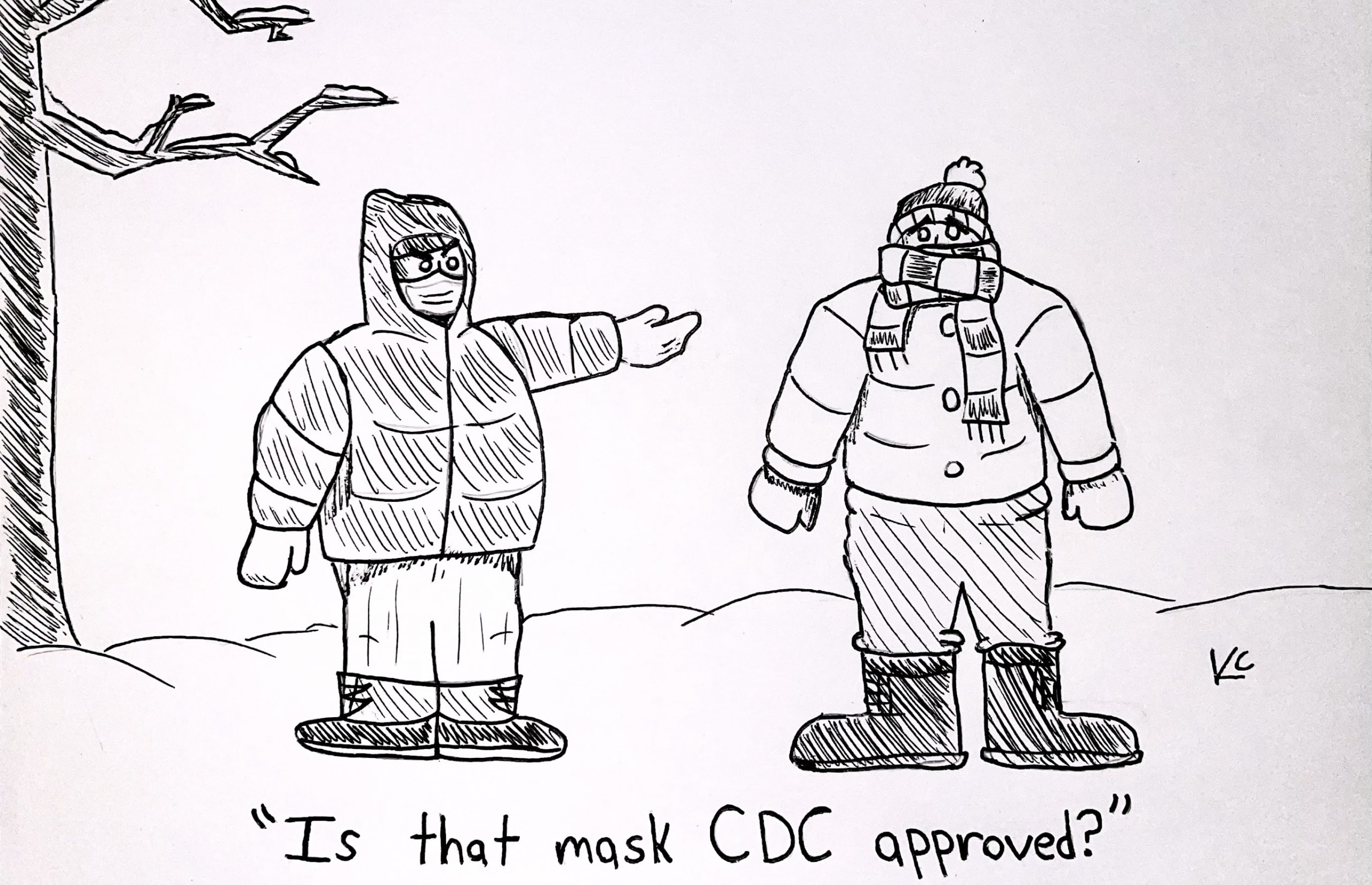The opinions, beliefs, and viewpoints expressed by the author do not necessarily reflect those of the Asbury Collegian or its staff members.
Nearly two years into the pandemic, Asbury University is still requiring its students to wear masks in chapel and classes. In fact, this semester, Asbury seems to be enforcing masking requirements more strictly than last semester.
This is despite many students trying to make their voices heard that they do not want mandatory masks. After Asbury reversed its “Return to Regular” policies prior to the Fall 2021 semester and stated it would be requiring masks after all (previously masks had been declared optional), a petition was started on Change.org – a platform designed for individuals to voice opinion – to make masks optional on campus.
“Students and parents deserve to make their own decisions relating to their family’s health,” the petition stated, “Mask choice will not threaten the overall health of campus, as if these things are truly effective, no one protected by them is at risk.”
Within two weeks, the petition gained over 150 signatures by spreading via word of mouth. The student who started the petition was given a meeting with Dr. Brown, yet the policies were not changed at that time. Many students who signed the petition felt like they were being placated by the interview and then ignored.
An email from Health Services read, “Masking is still considered one of the best ways to decrease the spread of COVID.” But this tactic seems to be an example of the adage that if you repeat something enough, it will be accepted as fact.
I have yet to find any randomized controlled trials that support the efficacy of cloth masks against COVID-19. Statistics show that places where masks are required do not have fewer COVID cases per capita than places where they are not required. COVID-19 particles are so small compared to the holes in woven cloth masks that it has led some medical professionals to use the analogy of trying to stop mosquitoes with a chain-link fence. Considering the lack of scientific support for masks, whether or not to wear one should be a personal choice.
This tightening of the rules makes even less sense because the Omicron variant, which is becoming the dominant variant of COVID-19, is the least severe of the variants so far. It is more contagious, but it is also less likely to lead to severe complications or death. While Asbury seems concerned with case counts, the number of cases does not equate to severity.
Additionally, college-age students are already a low-risk age group for COVID-19. According to the Center for Disease Control and Prevention website, when compared to 18- to 29-year-olds, “the rate of death is four times higher in 30- to 39-year-olds, and 370 times higher in those who are 85 years and older.” The rate of hospitalization was also much lower among 18- to 29-year-olds.
Some students do approve of Asbury’s mask protocols. I asked Sara Brewer, a sophomore, to explain why she thinks the protocols are in our best interest. “If I was asked last semester? I would have felt neutral about masks being optional. But since we have started the semester with a new COVID-19 variant, an increased positivity rate in Kentucky, and breakthrough cases becoming more common, I do agree and appreciate the school’s mandate to mask-up for chapel and classes since students are in close proximity with each other during those times.”
Brewer went on to say, “I definitely understand the argument against masks; they’re inconvenient, and I do un-mask outside of class when I feel comfortable with it. Although the decision is an unpopular one, I think Asbury’s mandate is in place to keep our campus healthy, which allows us to continue to learn in-person and with friends, so I’ll keep wearing mine!”
On the other hand, many students and faculty have simply had enough of masks and stopped wearing them last semester. Part way through the semester, Asbury announced that it was dropping its mask mandate except for in chapel and classes. However, mask-wearing was not enforced in chapel, and a large percent of the student population (I would estimate at least half from what I saw) refused to wear masks in chapel, indicating that this percentage of the student population disagrees with the school mask policy.
Yet, Asbury is still not listening to the students (the university’s paying customers). In chapel on Monday, Jan. 10, students were required to put on masks before they entered Hughes. After chapel began, the faculty passed out masks to any students who were not wearing them and told them that they must wear them for the duration of chapel.
Obviously, we are considered incapable of thinking and making decisions for ourselves and have therefore lost that freedom. Instead, Asbury is treating us like toddlers who must be forced to do things against our will, rather than as adults who can make our own decisions.


